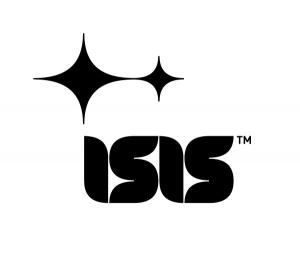Isis
We’re Updating Our Profiles Section
Stay tuned for all new and updated exclusive profiles on companies and organizations involved in the ecosystem.

The Isis joint venture, formed by AT&T, Verizon Wireless and T-Mobile USA, seeks to use the combined market clout of three major U.S. mobile carriers to roll out NFC phones and services.
The telcos are building a uniform platform for their NFC-based Isis wallets, which would be loaded with payment, couponing, ticketing and other contactless-mobile applications.
The joint venture, announced in November 2010, had originally planned to launch its own payment scheme at the physical point of sale in the United States, taking on payment giants Visa Inc. and MasterCard Worldwide.
But by early May 2011, the joint venture confirmed it had abandoned that plan. Isis had found signing up merchants a tough slog and their business case for rolling out an Isis-branded payment service became increasingly tenuous after the U.S. Congress passed legislation mandating lower merchant fees on debit transactions, the so-called Durbin Amendment.
In the months leading up to its change of course, Isis had already been pushing the message that it was open to a variety of service providers for its wallet.
And in July 2011, the joint venture announced agreements with the four major U.S. payment networks, including Visa and MasterCard, which said they would support the Isis wallet. The deals, however, aren’t exclusive and the payment networks could work with other NFC wallet providers, such as Google, or, in the case of Visa, continue to advance their own wallets.
But the agreements will help Isis recruit more banks and other payment issuers for the Isis wallets. The announcement also helped Isis to win back some respect in the fast emerging U.S. mobile-payments ecosystem. Abandoning the plans for a new payment scheme had caused the Isis mark to lose a bit of its sparkle.
The other networks forging agreements with Isis are American Express and Discover Financial Services.
Discover was already working directly with Isis, back when the telcos planned to introduce their own payment brand. Discover would have served as the sole retail acceptance network for Isis applications. With the new agreement, Discover probably will issue its own Zip contactless application on Isis phones. But a Discover spokeswoman said its role will be “processing mobile payments that run over the Discover network. Readers at the POS will be ZIP-enabled.”
Besides enabling payment by other issuers, the Isis telcos also plan to enable merchants and consumer products companies to deliver coupons and other mobile promotions to subscribers’ phones, among other applications.
Instead of earning merchant transaction revenue, Isis intends to charge fees from banks and other service providers for hosting their applications on the Isis NFC phones. It also will charge fees from advertisers for delivering the coupons and other offers to consumers.
And members of the Isis JV, such as AT&T, plan to introduce their own NFC services.
In February of 2012, Isis announced its first three banking issuers, JPMorgan Chase, Capital One and Barclaycard US, which plan to launch credit, debit or prepaid cards for the joint venture's planned two-city trial planned for Salt Lake City, Utah, and Austin, Texas. American Express later said it would participate in the Isis Wallet, but Barclaycard US is delaying its participation.
Plans called for the two-city trial to begin in early to mid-2012; then the launch was moved back to the end of summer. And in September 2012, Isis announced a delay in the pilot until at least October 2012.












